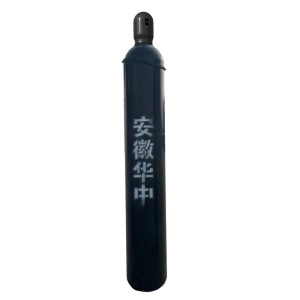Compressed Nitrogen Uses: Powering Industries with Inert Versatility
Compressed nitrogen, also known as gaseous nitrogen, is a versatile substance that finds numerous applications across various industries. This odorless, colorless gas is widely used for its unique properties and ability to maintain a controlled environment.

1. Food and Beverage Industry:
Compressed nitrogen plays a crucial role in the food and beverage industry by preventing spoilage and maintaining product quality. It is commonly used for packaging perishable food items such as chips, nuts, and coffee beans. Nitrogen-filled packaging helps to create a modified atmosphere that extends the shelf life of these products by inhibiting the growth of bacteria and other microorganisms. Additionally, compressed nitrogen is also used in beverage dispensing systems to maintain the freshness and carbonation of drinks.
2. Pharmaceuticals and Medical Applications:
The pharmaceutical and medical industries heavily rely on compressed nitrogen uses. In pharmaceutical manufacturing, nitrogen is used to create an inert environment during the production of sensitive drugs and chemicals. It helps to prevent oxidation and degradation, ensuring the stability and efficacy of the final products. Compressed nitrogen is also used in medical applications such as cryosurgery, where it is utilized to freeze and destroy abnormal tissues like warts and skin lesions.
3. Electronics Industry:
The electronics industry is another sector where compressed nitrogen finds extensive use. Nitrogen is widely employed during the production of electronic components, particularly in soldering processes. By displacing oxygen from the soldering environment, compressed nitrogen helps to minimize oxidation and improve the quality of solder joints. It also prevents the formation of harmful oxides that can affect the performance and reliability of electronic devices. Furthermore, compressed nitrogen is utilized for cooling electronic components during testing and assembly, ensuring optimal operating conditions.
4. Automotive Industry:
In the automotive industry, compressed nitrogen has gained popularity as an alternative to traditional air for tire inflation. Nitrogen-filled tires offer numerous benefits such as improved fuel efficiency, longer tire life, and enhanced safety. Nitrogen molecules are larger than oxygen molecules, which reduces the rate of pressure loss through the tire walls. This results in more stable tire pressure, reducing the risk of blowouts and improving overall vehicle performance. Additionally, nitrogen-filled tires are less prone to temperature-related pressure fluctuations, making them ideal for extreme weather conditions.
5. Aerospace and Aviation:
Compressed nitrogen plays a critical role in aerospace and aviation applications. It is used for purging and pressurizing fuel tanks, hydraulic systems, and aircraft tires. The inert nature of nitrogen makes it ideal for displacing oxygen and moisture from these systems, preventing corrosion and ensuring their proper functioning. Nitrogen gas is also utilized for fuel tank inerting in aircraft to reduce the risk of explosions caused by flammable vapors. This application is particularly important in military aircraft and commercial airliners where safety is of utmost concern.
In conclusion, compressed nitrogen offers a wide range of applications across various industries. From preserving food freshness to enhancing electronic device performance, its unique properties make it an invaluable resource. As technology continues to advance, we can expect to see even more innovative uses for compressed nitrogen in the future.



